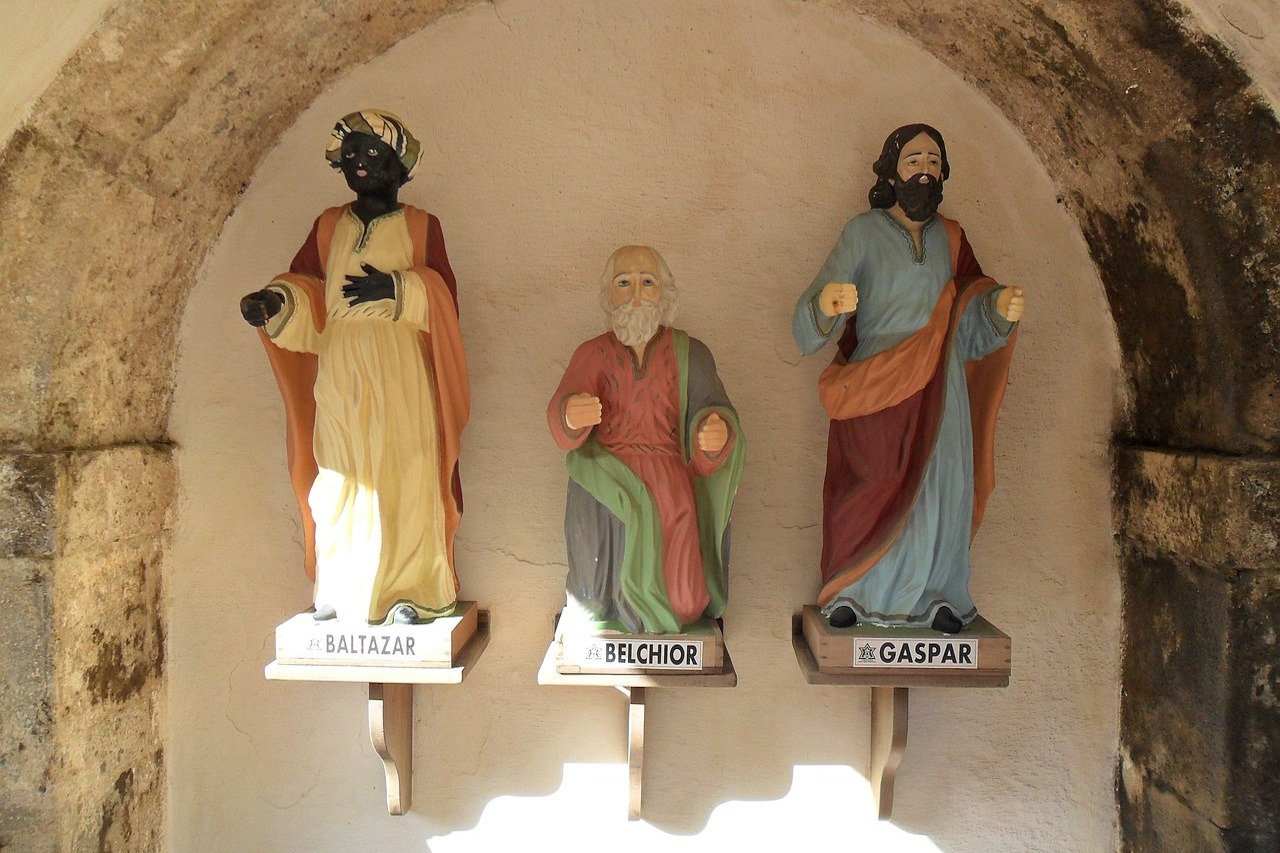Isaiah 60: 1-6; Psalm 72; Ephesians 3: 2-3a, 5-6; Matthew 2: 1-12.
The year was 1987. A world-renowned professor of catechetics had assembled a crack team of experts in scripture, religious education, liturgical theology and liturgical music to work on a comprehensive Lectionary for Masses with Children.
The work ran aground briefly, precisely on the readings for the Epiphany, and the issue was Matthew’s description of the profession of these visitors to the stable in Bethlehem. Consistent with the committee’s painstaking policy of simplifying Bible language for children while retaining accuracy, “Magi” did not sound quite right in today’s English. Kids wouldn’t know what that word meant. “Wise men” was not inclusive and not very specific. The draft text written by the scripture scholar read “astrologers,” and the professor protested, “Why change this? The name is very simple! Les Mages! Les Mages!” (Her first language was French.) There was some counter-argument supporting “astrologers.”
And then I, the lowly editorial assistant, spoke up.
I pointed out that the big news story from the United States was the shock and ridicule directed at President Ronald Reagan and Nancy Reagan because of the disclosure that they routinely consulted astrologers to determine auspicious dates and times for important government meetings. Horrors, a superstitious President! His credibility was at stake. And after all, the primary market for this project was in the U.S.
I hesitantly suggested “astronomers.”
More discussion ensued, and in the end we wrote “astronomers.”
Fast forward three years when, after much struggle with publishers, bishops and canon lawyers, the three-volume Book of Readings plus catechetical materials, leaders’ and parents’ guides, children’s leaflets and singable music, was finally published, distributed and sent around for critical review. Wouldn’t you know, one reviewer, out of all these voluminous texts, seized on this reading, saying that calling the Magi “astronomers” was, well, just silly. …sometimes you can’t win.
Seen in the long scope of church history, the objection to astrology wasn’t far off the mark – some of our ancestors in faith reacted much the same. New Testament experts today think the word “magi” could have meant a caste of wise persons possibly associated with astrology, Zoroastrianism, dream interpretation, or magic. They only became “kings” when this passage was coupled with Psalm 72: 10-11 and two texts from Isaiah, and their number only settled at “three” because of the three gifts, so they brought one apiece.
But it was the “star” thing that really upset some early Christians. It fed into the idea, prevalent among many then and some now, that the stars determine human fate. If this were true, humans would be simply puppets of unseen forces, reduced to helplessness. Only when the focus is shifted can we see the core story here as one of human recognition and response, not astral control. The Christ-child, the cosmic Christ, does not overwrite human responsibility, but calls humans to conversion, metanoia, to act decisively to repair the damage done to the world by injustice, to act with justice and love in all our affairs – to walk in light.
Matthew’s story makes more sense read at the level of symbolism and analogy than as fact. Matthew changed a number of details from his source material in composing his story. His point was to assert that this newborn was a king in the line of David, not a brutal tyrant as was Herod.
Perhaps the real meaning of the star is not that it portends something, or even that it points the way to something. (Have you ever thought that if the visitors had been located east of Bethlehem, and the star had arisen in the East and they followed it, they would be going in exactly the wrong direction?) Perhaps the star is light itself. This echoes the exuberant theme of light that dances across the first reading from Isaiah:
“Rise up in splendour Jerusalem! Your light has come … on you our God shines… Nations shall walk by your light, and kings by your shining radiance… Then you shall be radiant at what you see, your heart shall throb and overflow…”
What a marvellous way to step across the threshold into a new year. And what a marvellous beacon of fresh hope in a conflict-laden world.
© Susan K. Roll
Susan Roll retired from the Faculty of Theology at Saint Paul University, Ottawa, in 2018, where she served as Director of the Sophia Research Centre. Her research and publications are centred in the fields of liturgy, sacraments, and feminist theology. She holds a Ph.D. from the Catholic University of Leuven (Louvain), Belgium, and has been involved with international academic societies in liturgy and theology, as well as university chaplaincy, Indigenous ministry and church reform projects.





I love the story of the Magi following a star. There is something so cosmic about it!!
There have been a few times in my life, when I only partially understood the options before me – yet *knew* the way I had to go. In a way, I was being lead by a star. Looking back, those stars too lead me to a deeper experience of Christ – often in ways I did not imagine.